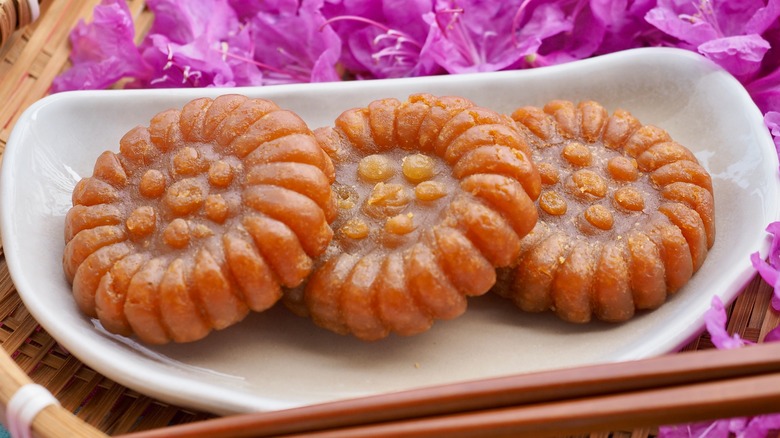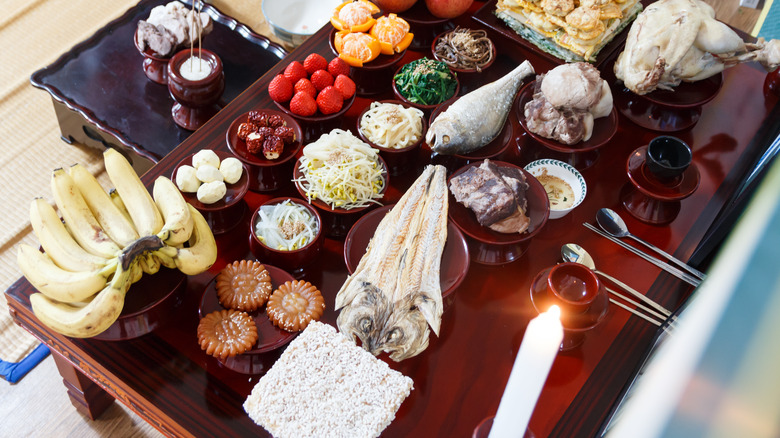Yakgwa Cookies: The Korean Sweet With A Ceremonial History
If you want to deepen your knowledge of Korean culture and history, look no further than the traditional sweet treat called yakgwa. This is a unique type of cookie with a storied past, and it remains prevalent in Korean culture to this day. The treat, which falls somewhere between a confectionary and a cookie, is made from a flour and sesame oil dough, which gets fried in more oil before it's soaked in ginger honey syrup until dripping. If you eat yakgwa cookies fresh, your fingers will immediately become sticky from all the honey and rice syrup. While these do add sweetness, ingredients like sesame oil, ginger juice, and even a pinch of black pepper ground the cookie with hints of savoriness for a well-balanced bite. The name comes from the Korean words "yak," meaning medicine, and "gwa," meaning confection. As honey is often included in remedies for various illnesses — it's a great source of antioxidants when eaten every day — the cookies' name points to more than just their tastiness.
Yakgwa cookies became common during the Goryeo Dynasty (918-1392) when Buddhism was the widespread religion of the state. At this time, yakgwa were used for ancestral rites and rituals, as meat was not a permissible offering. At several points throughout Goryeo history, kings even had to ban these cookies' preparation because it caused flour and honey shortages. Today, many people still use these cookies for ceremonial purposes.
Yakgwa frequently appear in ancestral rites
Yakgwa carry greater significance than more everyday desserts like patbingsu (Korean shaved ice). Since Goryeo times, yakgwa have commonly appeared on special occasions like birthdays, weddings, death anniversaries, and holidays like Chuseok (the harvest festival) and Seollal (Korean New Year). The latter three of these share the practice of traditional ancestral rites known as jesa. On these major holidays or the anniversary of a death, Koreans honor their ancestors and the dead, respectively, with meticulously arranged ritual tables covered in different kinds of food. The first rows on the table generally consist of staples like rice and meats, while the final rows feature fruits and desserts such as yakgwa.
This practice of honoring the dead has been passed down through generations, and while jesa still exists today, fewer people feel the need to practice it, whether for personal or religious reasons. Although they're still eaten on special occasions, yakgwa also increased in commercial popularity when younger generations began turning to snacks from the past. A phenomenon called "yakgeting" (a combination of "yakgwa" and "ticketing") entails competitively pre-ordering yakgwa from bakeries online. Even chain bakeries like the South Korea-based Paris Baguette are jumping on the trend, selling cookies topped with yakgwa — a double-cookie dessert that few dessert lovers would complain about.

